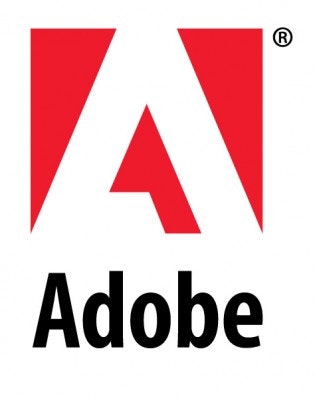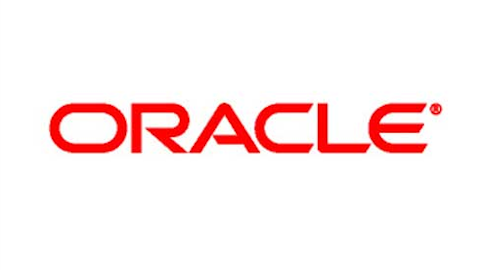For investors with secure jobs and a stable working environment, devoting savings to invest in high-growth stocks can be a perfect way to achieve diversification of their current capital.
Application software industry
The software industry has been changing so rapidly that a company needs to be on the move to keep ahead of its competitors. The U.S. software industry accounts for 42.6% of the global software market’s value.

Adobe Systems Incorporated (NASDAQ:ADBE) has recently spent $600 million to increase its abilities and battle more efficiently with the rivals which include Oracle Corporation (NASDAQ:ORCL), International Business Machines Corp. (NYSE:IBM), and salesforce.com, inc. (NYSE:CRM). These software competitors have, in fact, focused on three databases: namely Oracle, Microsoft SQL Server, and IBM DB2.
Adobe’s acquisition of Neolane: a positive or a negative move in the quest for growth?
Let’s take a closer look at Adobe Systems Incorporated (NASDAQ:ADBE)’s recent acquisition of Neolane and try to analyze if it is a wise long-term investment or not.
Adobe Systems Incorporated (NASDAQ:ADBE)’s business shift towards the creative cloud has helped shorten upgrade cycles, allowing the company to respond more quickly to changing user demands. This strategy benefited Adobe due to the recurring nature of its revenue. Even though margins are already above industry average, this has helped further widen them.
Adobe Systems Incorporated (NASDAQ:ADBE) acquired privately owned Neolane, a French digital marketing company, for $600 million cash.
Adobe Systems Incorporated (NASDAQ:ADBE) is the biggest maker of graphic design software. Its software portfolio includes Photoshop, After Effects, and Dreamweaver. Neolane is expected to unite with Adobe’s Marketing Cloud product line to strengthen Adobe’s visibility. The company works on producing tools that help marketers link up with customers through the internet, email, mobile devices, and direct mail by providing a place to administer and automate marketing. Neolane will add key cross-channel management capabilities to Adobe.
Neolane reported $58 million in revenue in fiscal year 2012, representing a 40% annual growth, compared to the previous year. A quarter of its sales were made in the U.S. The acquisition can add up to at least $0.12 per share in revenue for Adobe Systems Incorporated (NASDAQ:ADBE)’s shareholders.
Neolane will prove to be a good complement to Adobe’s existing strengths in the fields of web analytics, content management, audience optimization, and customer experience management.
Possibly the market moves made by Oracle Corporation (NASDAQ:ORCL) and salesforce.com, inc. (NYSE:CRM) didn’t leave Adobe Systems Incorporated (NASDAQ:ADBE) with much choice if it wished to continue to build on its integrated digital marketing as a comparative advantage.
salesforce.com, inc. (NYSE:CRM) agreed to buy Exact Target for $2.5 billion during the previous month. Oracle Corporation (NASDAQ:ORCL) acquired Eloqua last year for $871 million while Teradata purchased Aprimo in 2010 for $525 million.
Oracle Corporation (NASDAQ:ORCL) and salesforce.com, inc. (NYSE:CRM) recently declared a complete nine year partnership plan, covering all three layers of cloud computing: Applications, Platform and Infrastructure. Salesforce.com had been using Oracle software, but now the company has moved towards utilizing Oracle hardware as well. This has been a major move for the company. The two companies also plan to integrate their clouds.
Also, Oracle Corporation (NASDAQ:ORCL) and Microsoft entered into a partnership. Now, Microsoft’s customers can operate Oracle’s software on Windows Server Hyper-V and Windows Azure. Customers will be able to install Oracle’s software including Java, Oracle Database and Oracle WebLogic Server on Windows Server Hyper-V or Windows Azure and will get full assistance from Oracle.
To stay ahead of its competitors, International Business Machines Corp. (NYSE:IBM) has also recently launched its Big Data Technology for radically faster data analysis and decision making. It is expected to offer industry leading performance, scale, and reliability on the user’s choice of platform from Linux, UNIX and Windows to z/OS.
Conclusion
With Adobe Systems Incorporated (NASDAQ:ADBE)’s stock trading at approximately 32 times its earnings and a 17% discount to the industry average, it is offering promising growth prospects. I would advise buying stock in Adobe for investors who can lock their investment for a few years as the company does not provide regular income. Since 2006, Adobe has not paid any dividends.
salesforce.com, inc. (NYSE:CRM) is also a non-dividend paying company and should be sold as it is declaring negative net income from the past 2 years.
For an investor looking for a regular income stream, International Business Machines Corp. (NYSE:IBM) is the stock to buy as the company has been increasing dividends per share since 2003. With its recent launch of DB2 technology, the company looks forward to increasing its annual dividends by 47%, as displayed by its dividend history. Oracle Corporation (NASDAQ:ORCL) also pays a dividend since 2009, and is expected to increase its annual dividend by 14% in 2013. Overall, IBM should be bought and preferred over Oracle, as IBM is offering a higher dividend yield of 1.72% compared to Oracle’s 1.26%.
Awais Iqbal has no position in any stocks mentioned. The Motley Fool recommends Adobe Systems and Salesforce.com. The Motley Fool owns shares of International Business Machines. and Oracle.
The article There’s Always Potential in the Software Industry originally appeared on Fool.com.
Copyright © 1995 – 2013 The Motley Fool, LLC. All rights reserved. The Motley Fool has a disclosure policy.




